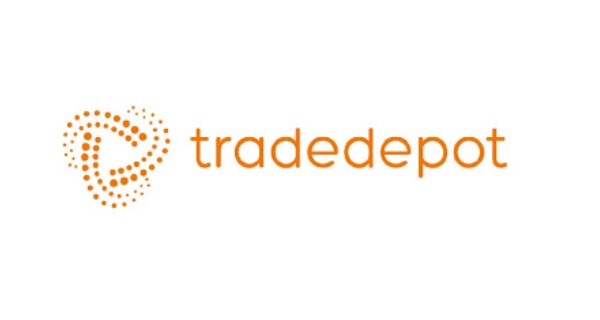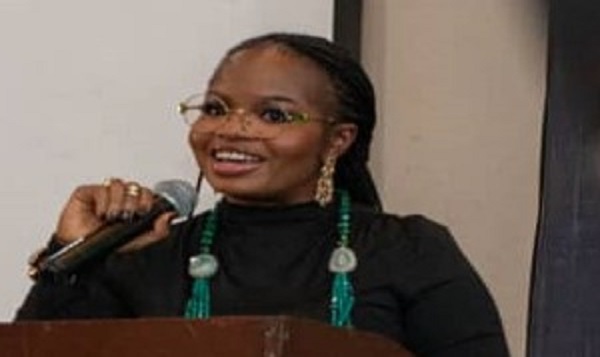News
TradeDepot Highlights Top Trends that will Shape Nigeria’s Retail Sector in 2021

TradeDepot, the B2B eCommerce platform for consumer goods in Africa, has today released new insights from its market data that highlights the trends that will shape Nigeria’s retail sector in 2021.

According to TradeDepot, the impact of the pandemic, rising inflation, border closures and other issues drove significant changes in behaviour for retailers, distributors and manufacturers in 2020.
As the sector settles into the new year, TradeDepot predicts that some of the main trends that shaped 2020 – particularly smaller packaging for consumer goods and increased spending on food and essential goods due to dwindling disposable income and people spending more time at home – will continue to influence behaviour across the market.
The retail sector is the third largest contributor to Nigeria’s Gross Domestic Product (GDP) and more than 90 percent of the sector is made up of informal retailers.
TradeDepot has built a network of more than 50,000 micro retailers, working with global distributors and manufacturers like Nestlé, Unilever, GB Foods and Danone to make household supplies such as milk, soap, detergent and other essentials more accessible and affordable. The top insights from TradeDepot’s data include:
Key trends from 2020
- Across the retail sector, the pandemic led to an increase in store owners exploring alternative channels of reaching, acquiring and servicing customers – especially online and social media. Demand for TradeDepot’s services increased by 500%, with a 300% increase in transaction value and volume on the back of the pandemic.
- Consumer buying patterns shifted slightly towards more food items, with growth in purchase of food and essentials as opposed to other categories. TradeDepot’s data revealed a 10% increase in the overall contribution of food items to the distribution volumes, compared with 2019.
- In the drinks category, the lockdown impacted the ability of manufacturers and distributors to sell into bars, restaurants and clubs, which usually account for up to 60% of their revenue. As a result, many shifted their attention to Mom and Pop, convenience stores etc to cushion the impact
- In the detergent category, price increases driven by inflation led many manufacturers to either introduce or expand production capacity for smaller packs (25g, 90g, 190g, etc) to drive more volume in the consumer segment of the market, which accounts for 65% of the market. The pandemic also saw the introduction of more hygiene-related products to help curtail the spread of the virus
What do these trends mean for the Nigerian retail sector in 2021
- We foresee manufacturers adapting to rising inflation and dwindling disposable income by extending the trend of smaller packs to other product categories
- Manufacturers will explore more alternative route-to-market channels with capabilities to build retail networks and offer logistics-as-a-service to mitigate the risks that come with serving new customer bases
- We expect an increase in the number of challenger value brands and new market entrants offering lower priced products in key categories as consumers get increasingly price conscious and more eager to experiment with new, lower-priced products.
- We also anticipate a rise in products and services designed to help consolidate and improve the industry. There could be more competition higher up in the value chain with more platforms designed to provide auxiliary services like goods packaging and processing etc.
- With the pandemic still ongoing, we envisage that people will continue to take a cautious approach to mingling in crowds and will spend more time at home than in previous years, As a result, spending on food and essential goods is likely to increase
Challenges and opportunities for 2021
- There are challenges with data aggregation because it is a relatively new discipline in this space but so there’s an opportunity for companies with the right capabilities to capture this and utilise it to cater to the audience. Structured access to short term inventory financing at minimal interest rates will also help stimulate growth
- There are also challenges with infrastructure and logistics, which makes it difficult for store owners to meet the demands of the customers and grow their businesses.
- Access to working capital is still the biggest challenge most retailers face in trying to grow their business. There has been some progress with financial services for consumers in recent years and there is potential for many of the learnings to be adapted for retailers
According to Onyekachi Izukanne, CEO and Co-Founder of TradeDepot, “the retail sector is one of the strongest pillars of the Nigerian economy but the absence of data and verifiable insight often makes it difficult to assess the opportunities and challenges that abound in the space.
The sector is also hampered by infrastructure and logistics issues that undermine the efforts of the industrious business owners. With some more support from government, public institutions and private sector players, there is the potential to transform the Nigerian retail market and achieve a quick win for boosting the nation’s GDP”.
News
LIRS to Invoke NTAA to Recover Unpaid Taxes from Bank Accounts, Others

Lagos Internal Revenue Service (LIRS) pursuant to Section 60 of the Nigeria Tax Administration Act (NTAA), plans to ask Nigerian banks to debit bank accounts of employers who failed to remit tax liability.

This was disclosed in a recent notice on Sunday.
LIRS stressed that the move was in line with the implementation of the country’s NTAA and other new tax laws, which took effect on January 1, 2026.
“Where a taxpayer fails, neglects, or refuses to settle any established outstanding tax liability when due, LIRS may exercise its power under Section 60 to direct any of the following persons to pay the amount owed by the taxpayer:
“Banks and other financial institutions; Employers; tenants, debtors, or customers of the taxpayer; Agents, business partners, and any person holding money on behalf of the taxpayer; Any person owing money to the taxpayer, whether presently due or accruing. Once a substitution notice is issued, the person served is statutorily required to remit to LIRS the amount. Specified in the notice from funds belonging to, or payable to, the defaulting taxpayer,” the LIRS notice partly read.
Meanwhile, Taiwo Oyedele, chairman of the Presidential Committee on Fiscal Policy and Tax Reforms, weeks ago ruled out claims that the government would debit personal accounts over tax remittances.
News
Anambra Cuts Monday Pay to Kill Sit-at-Home

Anambra State will implement pro-rata salary payments for civil servants starting February 2026, targeting chronic Monday absenteeism from the long-running sit-at-home order, Information Commissioner Dr. Law Mefor announced Saturday.

Soludo
Speaking at an Awka briefing after the Executive Council’s end-of-tenure retreat, Mefor said improved security and transport have eliminated excuses for the four-year disruption, which cost the state trillions in lost revenue. “Workers enjoyed full pay despite staying away; now, no work means no pay for that day, calculated over 24 working days,” he stated.
Compliance measures include mandatory Monday clock-in forms, with markets urged to reopen fully amid bolstered security. This builds on a January 22 executive order docking 20% pay from teachers absent on Mondays.
Mefor warned that lost Mondays cripple revenue collection and productivity, rejecting alternatives like Saturday shifts as capitulation to agitators.
News
Stakeholders Demand Stronger Governance and Infrastructure to Drive Tech Adoption @ Lagos AI Summit

As AI adoption accelerates across Nigeria, leaders at the “AI in Action Now” conference 2026 have called for a balance between rapid innovation and strict regulatory governance. The event, held at the Lagos Oriental Hotel, highlighted both the doggedness of Nigerian builders and the risks of unregulated data usage.

Dotun Adeoye, Co-Founder of AI Nigeria, raised alarms over “Shadow AI”, a trend where employees upload sensitive official documents to public AI platforms. He praised the Nigerian Data Protection Commission (NDPC) for its recent aggressive stance, including multi-million-dollar fines against major banks and social media brands.
“Innovation without governance is dangerous. The regulator now has the job of educating players. We are working in partnership with them to ensure players don’t just get fined, but actually understand how to protect data locally rather than storing it abroad, ” Adeoye noted.
Addressing issues of lack of infrastructure to carry AI adoption, Conference Convener Debola Ibiyode admitted that while Nigeria lacks the traditional foundation for AI adoption, the tech community cannot afford to wait.

“The simple answer is we don’t have the infrastructure, but Nigeria has never really had infrastructure to drive anything, and we still thrive, ” Iboyode said, encouraging students and builders to look beyond current limitations. “Once we start to build based on what we have now, it will encourage those who need to provide the infrastructure to do their part. The world will not wait for us,” she insisted.
To bridge this gap, she highlighted the AI Foundry Africa, an incubator designed to mentor ideas into market-ready products.
Meanwhile, speaking to journalists on the sidelines, Biodun Ogunleye, the Lagos State Commissioner of Energy and Mineral Resources, echoed the sentiment that the government’s role is to facilitate the right environment through partnership. He emphasized that data generated from interactions with the government must have long-term value.
“We must ensure that in all facets from production to interaction with government, the tools required to ensure data has value are appreciated,” Ogunleye stated.
He concluded that through private-sector collaboration, the government can focus on its primary functions while leveraging AI to ensure the nation aspires for the future.

 General News3 days ago
General News3 days agoPalmPay User Shares Experience on Fintech Apps to Trust in Nigeria

 News3 days ago
News3 days agoStakeholders Demand Stronger Governance and Infrastructure to Drive Tech Adoption @ Lagos AI Summit

 General News3 days ago
General News3 days agoNigerians Target Self-Improvement, Business Startups in 2026 Google Data

 News3 days ago
News3 days ago35 Million Nigerians Face Acute Hunger in 2026, UN Warns

 General News3 days ago
General News3 days agoHow Inside Jobs and Policy Shocks Trigger Nigeria’s Rising Loan Crisis

 News21 hours ago
News21 hours agoAnambra Cuts Monday Pay to Kill Sit-at-Home

 E-Financial21 hours ago
E-Financial21 hours agoFirst Asset Management Receives Upgraded Ratings from Agusto &Co and DataPro

 General News21 hours ago
General News21 hours agoNigeria Treats Religious Violence as Attack on State – NSA Ribadu

























